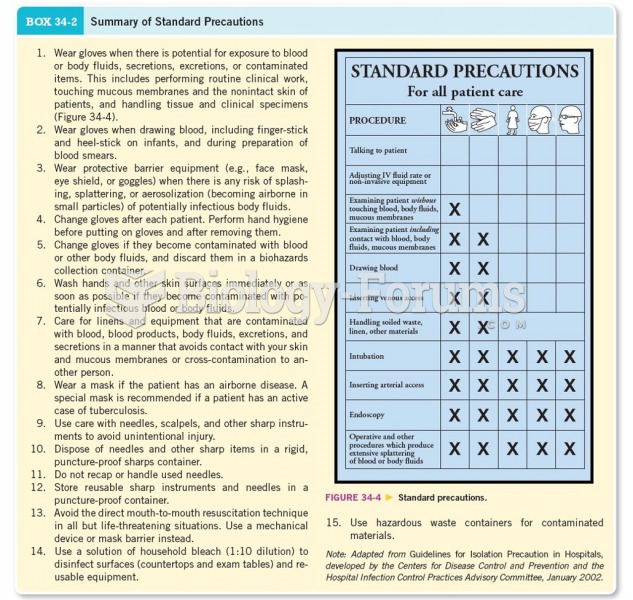|
|
|
The use of salicylates dates back 2,500 years to Hippocrates’s recommendation of willow bark (from which a salicylate is derived) as an aid to the pains of childbirth. However, overdosage of salicylates can harm body fluids, electrolytes, the CNS, the GI tract, the ears, the lungs, the blood, the liver, and the kidneys and cause coma or death.
The strongest synthetic topical retinoid drug available, tazarotene, is used to treat sun-damaged skin, acne, and psoriasis.
IgA antibodies protect body surfaces exposed to outside foreign substances. IgG antibodies are found in all body fluids. IgM antibodies are the first type of antibody made in response to an infection. IgE antibody levels are often high in people with allergies. IgD antibodies are found in tissues lining the abdomen and chest.
Thyroid conditions may make getting pregnant impossible.
Although the Roman numeral for the number 4 has always been taught to have been "IV," according to historians, the ancient Romans probably used "IIII" most of the time. This is partially backed up by the fact that early grandfather clocks displayed IIII for the number 4 instead of IV. Early clockmakers apparently thought that the IIII balanced out the VIII (used for the number 8) on the clock face and that it just looked better.
 The tundra at the base of the Torngat mountains in Labrador consists primarily of low-growing mosses
The tundra at the base of the Torngat mountains in Labrador consists primarily of low-growing mosses
 Placenta previa, longitudinal section showing the placenta growing over the opening into the cervix.
Placenta previa, longitudinal section showing the placenta growing over the opening into the cervix.
 Feedback mechanisms of the thyroid gland: (1) stimulus; (2) release of TSH; (3) release of thyroid h
Feedback mechanisms of the thyroid gland: (1) stimulus; (2) release of TSH; (3) release of thyroid h




